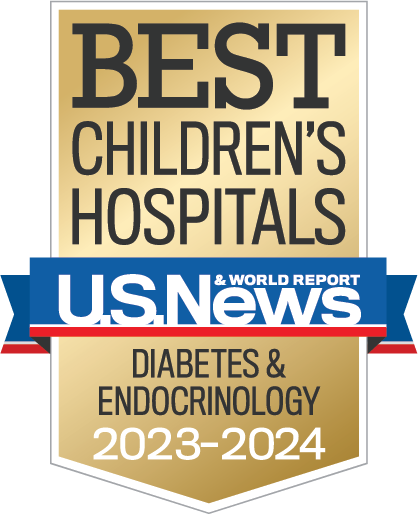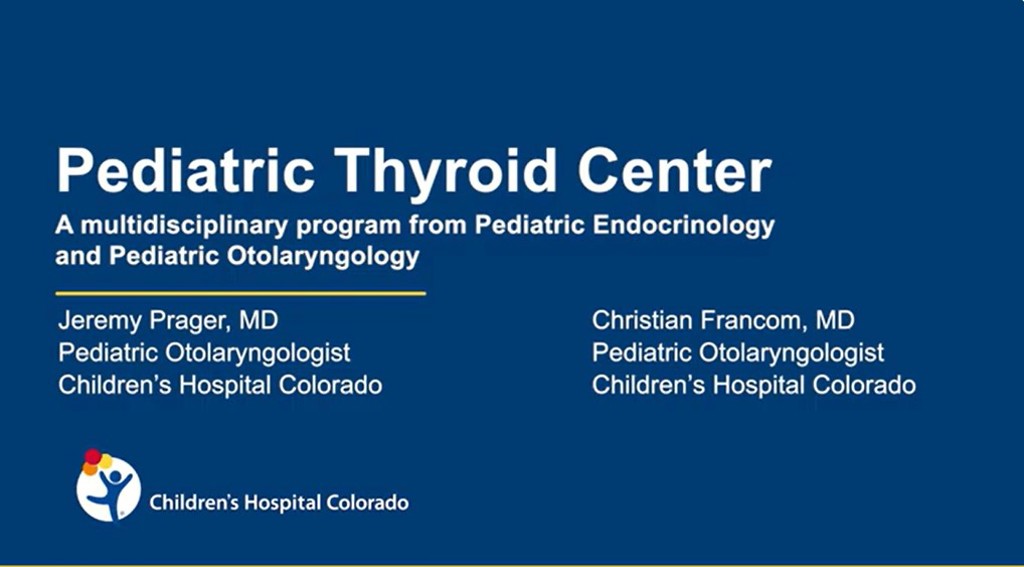- Doctors & Departments
-
Conditions & Advice
- Overview
- Conditions and Symptoms
- ¿Está enfermo su hijo?
- Parent Resources
- The Connection Journey
- Calma Un Bebé Que Llora
- Sports Articles
- Dosage Tables
- Baby Guide
-
Your Visit
- Overview
- Prepare for Your Visit
- Your Overnight Stay
- Send a Cheer Card
- Family and Patient Resources
- Patient Cost Estimate
- Insurance and Financial Resources
- Online Bill Pay
- Medical Records
- Política y procedimientos en el hospital
- Preguntamos Porque Nos Importa
-
Community
- Overview
- Addressing the Youth Mental Health Crisis
- Calendar of Events
- Child Health Advocacy
- Community Health
- Community Partners
- Corporate Relations
- Global Health
- Patient Advocacy
- Patient Stories
- Pediatric Affiliations
- Support Children’s Colorado
- Specialty Outreach Clinics
Your Support Matters
Upcoming Events
Mental Health Town Hall
martes, 23 de abril de 2024Join Children’s Hospital Colorado pediatric experts for a virtual...
-
Research & Innovation
- Overview
- Clinical Trials
- Q: Pediatric Health Advances
- Discoveries and Milestones
- Training and Internships
- Academic Affiliation
- Investigator Resources
- Funding Opportunities
- Center For Innovation
- Support Our Research
- Research Areas

It starts with a Q:
For the latest cutting-edge research, innovative collaborations and remarkable discoveries in child health, read stories from across all our areas of study in Q: Advances and Answers in Pediatric Health.



Our Thyroid Cancer and Nodule Program specializes in diagnosing and evaluating thyroid nodules. We also treat nodules that are cancerous or causing other problematic symptoms.
Why choose Children’s Hospital Colorado for pediatric thyroid cancer treatment?
Our clinic brings together experts from many specialties to provide comprehensive care. The specialties include oncology, otolaryngology, pathology, radiology and surgery.
Thyroid cancer is rare in children, compared to adults. So, we partner with our adult treatment experts at the University of Colorado Hospital, located on the Anschutz Medical Campus. This unique partnership enables us to provide the best possible care for children with thyroid cancer.
Our multidisciplinary approach allows families to meet with several specialists to address your child’s unique needs.
What can I expect when visiting the Pediatric Thyroid Cancer and Nodule Program?
We see children and adolescents up to 18 years of age. Our clinic is part of Children’s Colorado’s Department of Pediatric Endocrinology. We provide treatment at our Anschutz Medical Campus.
During your visit, you may meet with pediatric specialists including:
- A genetic counselor (specialist in gene testing)
- An oncologist (cancer doctor)
- A pathologist (specialist in body fluids and tissues)
- A radiologist (specialist in imaging tests like X-rays)
- Our surgical team, which includes specialists in otolaryngology (ear, nose and throat care) and general surgery
To diagnose pediatric thyroid cancer, we perform an aspiration biopsy. During this procedure, we insert a thin needle into the thyroid nodule or mass. We then collect cells and examine them under a microscope.
Childhood thyroid cancer treatment requires surgery. This usually involves a stay in the hospital. After surgery, patients will need to make appointments for follow-up care.
What services and support does Children’s Colorado provide?
Children’s Colorado provides thyroid nodule evaluation and diagnosis. Our procedures include blood testing, ultrasound imaging and fine needle aspiration. We provide medical and surgical treatment, as well as radioactive imaging and treatment.
We also provide counseling for children who don’t have thyroid cancer, but who are at risk. Families can consult with our Cancer Predisposition Clinic to discuss their family history. Those with children at risk can take steps to prevent and detect thyroid cancer as early as possible.
What causes thyroid cancer in children?
Childhood thyroid cancer is rare. Risk factors include family history and certain genetic syndromes. Radiation exposure also increases risk, including radiation treatment for other cancers.
Pediatric thyroid cancer occurs when cancerous cells grow in the thyroid gland, a butterfly-shaped gland at the front of the neck. It produces thyroid hormones, which control heart rate, body temperature and metabolism.
Doctors may discover thyroid nodules during routine health exams. They may also find them during imaging tests, like CT scans, that are done for other reasons. Yet, thyroid nodules rarely suggest cancer.
The two main types of thyroid nodules are adenomas and carcinomas. Adenomas are not cancerous but can sometimes become cancerous later. Carcinomas are cancerous and can sometimes spread to other parts of the body.
Types of childhood thyroid cancer
There are three main types of pediatric thyroid carcinomas:
- Papillary
- Follicular
- Medullary
Papillary thyroid cancer is the most common type in children, followed by follicular. These two types are called differentiated thyroid cancer. Medullary thyroid cancer is very rare, and in children, it is almost always familial or inherited.
Symptoms of pediatric thyroid cancer
There is usually no pain, and there are often no symptoms in early thyroid cancer. As more time goes by, symptoms may appear such as:
- Lump in the neck
- Difficulty swallowing or breathing
- Hoarse or changed voice
- An enlarged lymph node that doesn’t get smaller after several months
Most cases of childhood thyroid cancer can be successfully treated. Our thyroid cancer team provides the comprehensive, expert care you can expect from Children's Colorado.
Contact the Pediatric Thyroid Cancer and Nodule Program
Patients are seen by appointment only, with referral from their primary care provider. For appointments on the Anschutz Medical Campus, call 720-777-6128.



 720-777-0123
720-777-0123




 At Children’s Hospital Colorado, we treat the big things, the small things and everything in between.
At Children’s Hospital Colorado, we treat the big things, the small things and everything in between.
